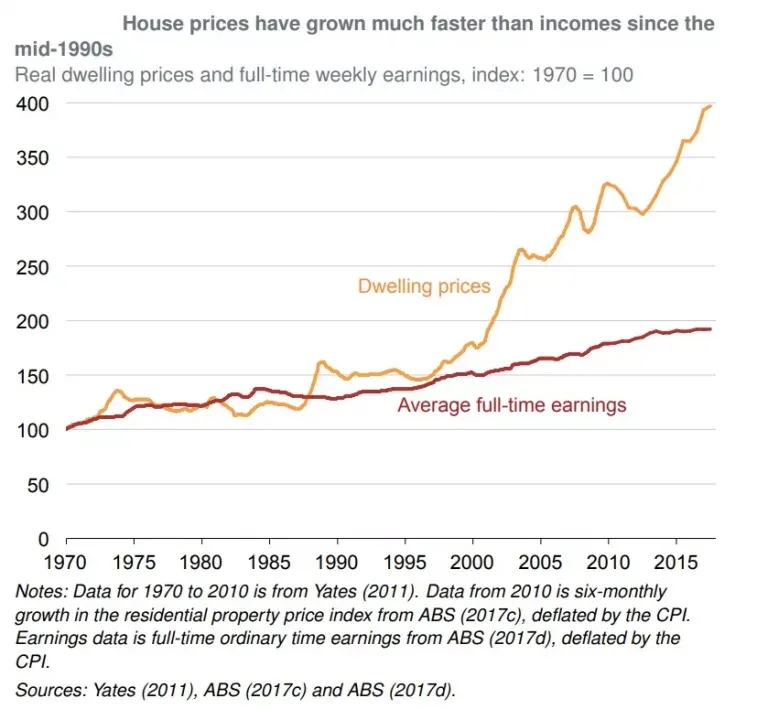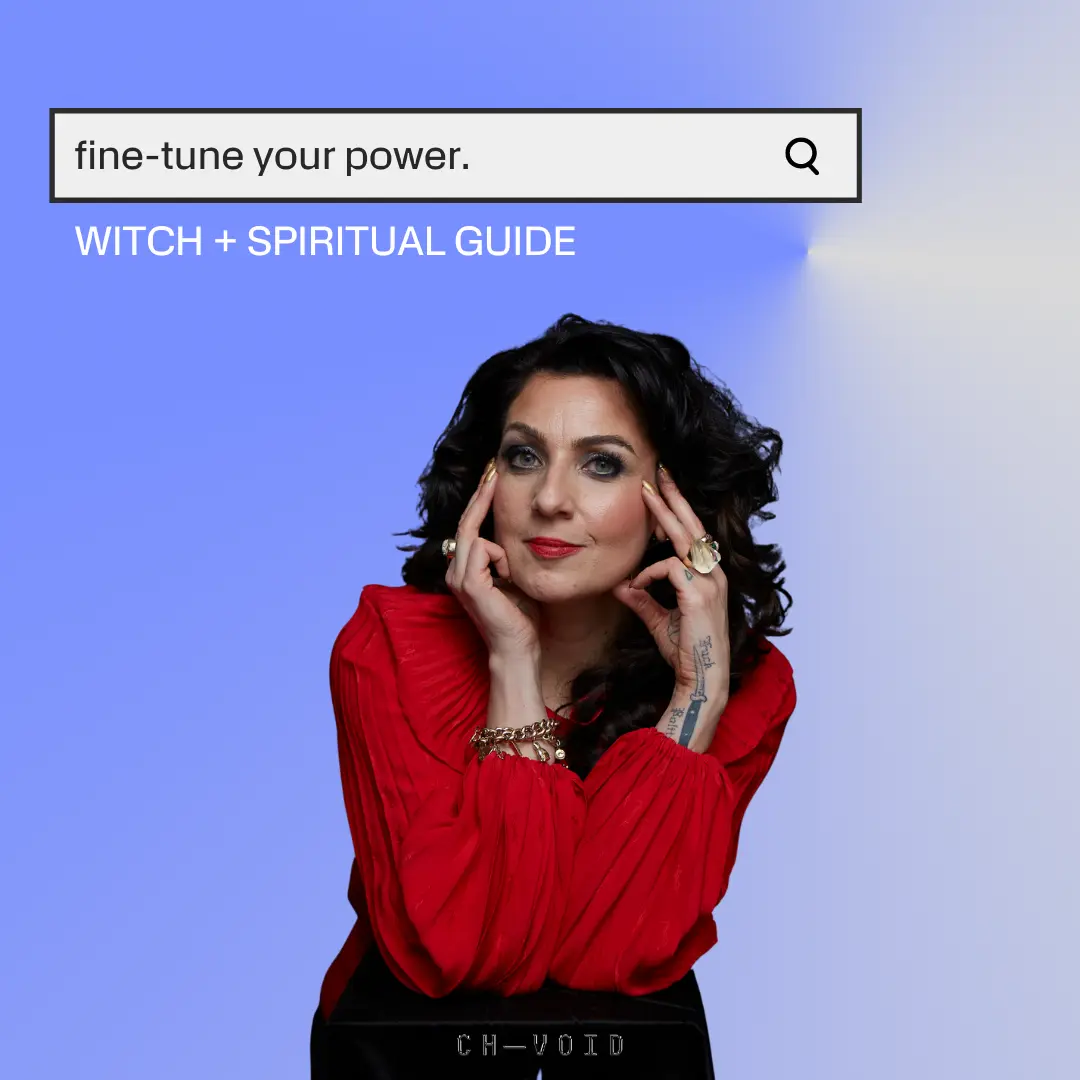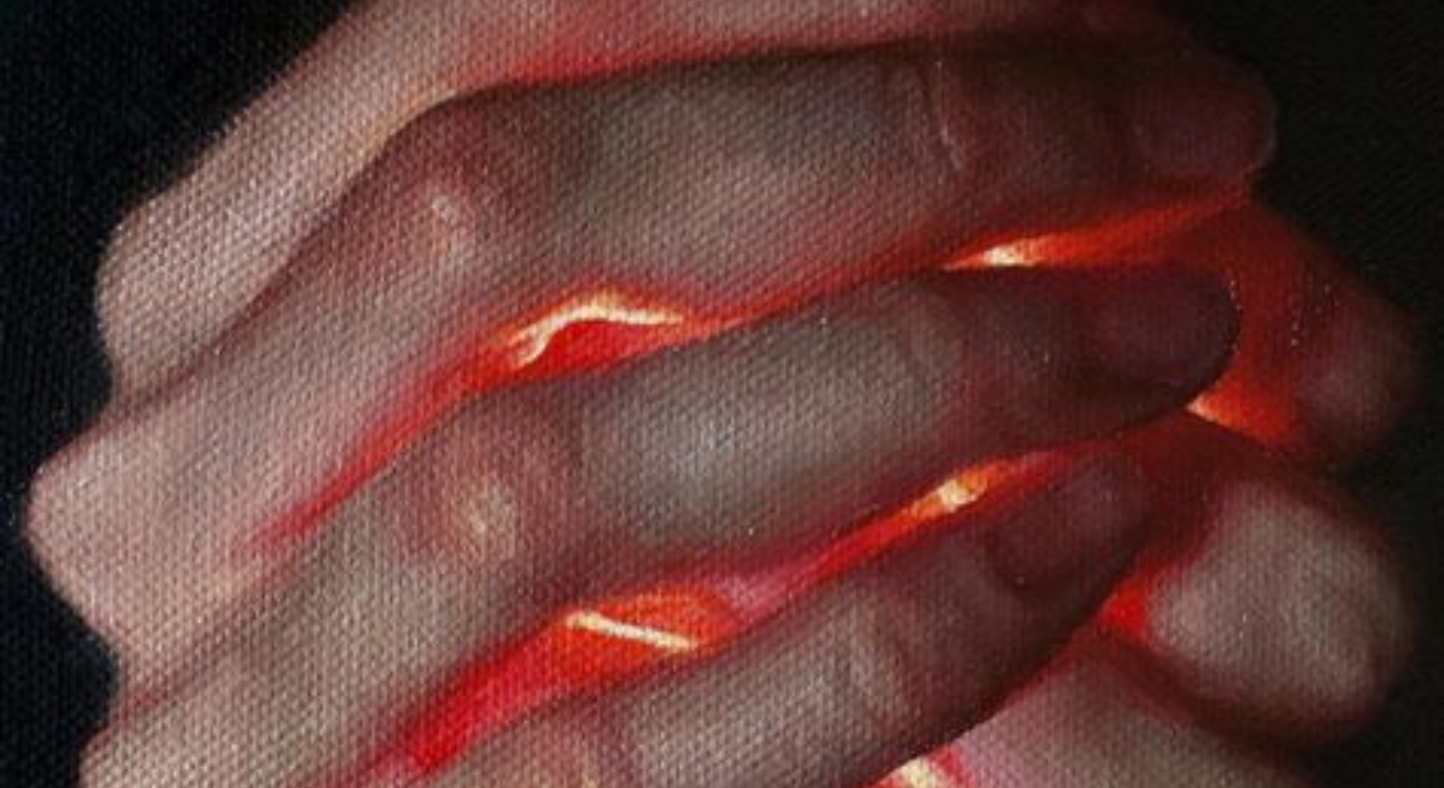What if Biggie was right?
Why is money so fucking stressful?
I was talking to a family friend who volunteers at Lifeline, a non-profit that provides free, 24-hour telephone crisis support. Volunteers offer suicide prevention services, mental health support and emotional assistance. She mentioned they have people who offer financial assistance in the same room because, in many cases, financial hardship leads to personal crisis. It got me thinking: money is pretty stressful.
Whether it be debt, bills or simply putting food on the table, a lot of people struggle to make ends meet. It’s estimated that 70% of millennials in Australia live paycheck to paycheck. The dream of owning your own home has become so stretched that there are many people who simply will never own. This alarming graph shows how house prices have blown out compared to income over the past 50 years.

Even my dad, who is retired but worked hard all his life and owns his home, is stressed about money. His main concern being “well, I don’t know how long we are going to live”.
Anecdotally when I think about some of the wealthiest people I know, there is a direct correlation between wealth and stress. As The Notorious B.I.G famously rapped in More Money, More Problems, ”I don’t know what they want from me / It’s like the more money we come across / The more problems we see.” Money fucks up pretty much everyone.
In the human science of wellbeing, one of the most enduring questions is “does earning more money lead to greater wellbeing?” It has relevance to individuals making trade-offs between income and other life goals, employers determining wages and government for influencing economic policy. While there is debate amongst researchers, the generally agreed consensus is that experienced wellbeing (that is how people felt during the day-to-day moments of their lives) on average rose within people to an income level of US$75,000 (approx $105k AUD). Beyond that, there was no further improvement. One interpretation of this result is that incomes up to $75,000 allow people to satisfy basic needs, leading to concrete improvements in their daily experiences.
Now, if you’re out there reading this saying “shit I need to earn US$75,000 to be happy”, that is not what the statistics are saying. There are many people who are entirely happy on very little, and monks who have nothing and live in total bliss. But what the research is saying, in general, is that The Notorious B.I.G was kinda right – making more money doesn’t necessarily make you happier.
Wait, but what the hell is money anyway? Money is a medium of exchange, it allows us to obtain what we need to live. Money is given its value because, for the most part, it represents something scarce, like gold. However, it is mostly a unit of account – a socially agreed unit to which all things are priced. Money works because we all agree on what it’s worth.
But yeah, money is stressful. And if we consider for most of us our source of money is income from work. We trade our skills, energy and time for money. We make an agreement with someone that our skills, energy and time are worth an amount, then execute on that. Work is money and money is stressful. If you think about the majority of where stress accumulates from it’s from work. For most of us, work is about money, and many of us have carved out jobs we love, but I bet a lot of you wouldn’t do it for free. The great thing about work is that there are almost an infinite number of ways you can get paid. For those who are able to match their passions with their vocations, work can be pretty blissful. But there is a formula engrained at school and carried into later life, the harder you work, the better your financial outcomes.
The movie In Time starring Justin Timberlake is set in a futuristic dystopia where people are genetically engineered to stop ageing on their 25th birthday when a one-year countdown on their forearm begins. When it reaches zero, the person “times out” and dies instantly. Time has thus become the universal currency, transferred directly between people or stored in “time capsules”. When you think about it, time is the most non-renewable resource we have. In your dying days, how much would you pay to have a few more healthy days with the ones you love? It’s not something you probably have to worry about today but what it does make you think about is what are you trading your time for today?
I see my dad begrudgingly doing jobs that he could afford to pay someone to do, but he doesn’t because he doesn’t want to run out of money down the line. YouTuber Casey Neistat said, “What is the ultimate quantification of success? For me, it’s not how much time you spend doing what you love. It’s how little time you spend doing what you hate.”
The worst part about money is that it makes us compare ourselves to other people. In the olden days, they called it “keeping up with the Joneses” or weighing yourself up against your neighbour. Now we have social media to remind us just how far we are behind. Comparison is a deadly stressful human condition. Layer on the bombardment of consumeristic advertising that is thrust down our throats at every interval. In Chuck Palahniuk’s Fight Club, the idea that the consumerist world has got us in shackles of unhappiness is the catalyst of dissent.
Advertising has us chasing cars and clothes, working jobs we hate so we can buy shit we don’t need. We’re the middle children of history, man. No purpose or place. We have no Great War. No Great Depression. Our Great War’s a spiritual war… our Great Depression is our lives. We’ve all been raised on television to believe that one day we’d all be millionaires, and movie gods, and rock stars. But we won’t. And we’re slowly learning that fact. And we’re very, very pissed off.
Barron Hanson
And that’s just it. Comparison culture is stress. That’s where we got to remember that every single one of us is running our own race. Every single person has a different set of circumstances. A different net wealth with a non-correlated level of happiness. And that YOU are exactly where you are meant to be. So don’t let the guy next door’s boat get you down. And don’t think you’re happier than a homeless person because you have air conditioning. But know you can choose happiness with what you’ve got.
And look, I know I am writing this from a privileged position. I was born a white male in the 8th best country in the world on the Human Development Index. I was raised in a middle-income family who own their own home. I had a great education in a free public school system. The government-subsidised my tertiary education. I’m pretty much cut and dry “should be happy with what I’ve got”.
But I want you to know that I still experience stress when it comes to money. I don’t know when I will own my first home. I just moved back in with my parents. I look at my friends and think shit I’m behind. But I tend to stray towards the positive and know that it’s all going to be alright. I’m trying to trust that nature is working itself out. I’m thinking hard about how I use my time and what makes me happy, like writing.
A friend once said, “money can’t buy happiness, but it can buy a yacht that pulls right up beside happiness”. And if metaphorical yachts are your goal, then all the power to you. But if that goal brings you stress today, is it worth the yacht tomorrow?





















